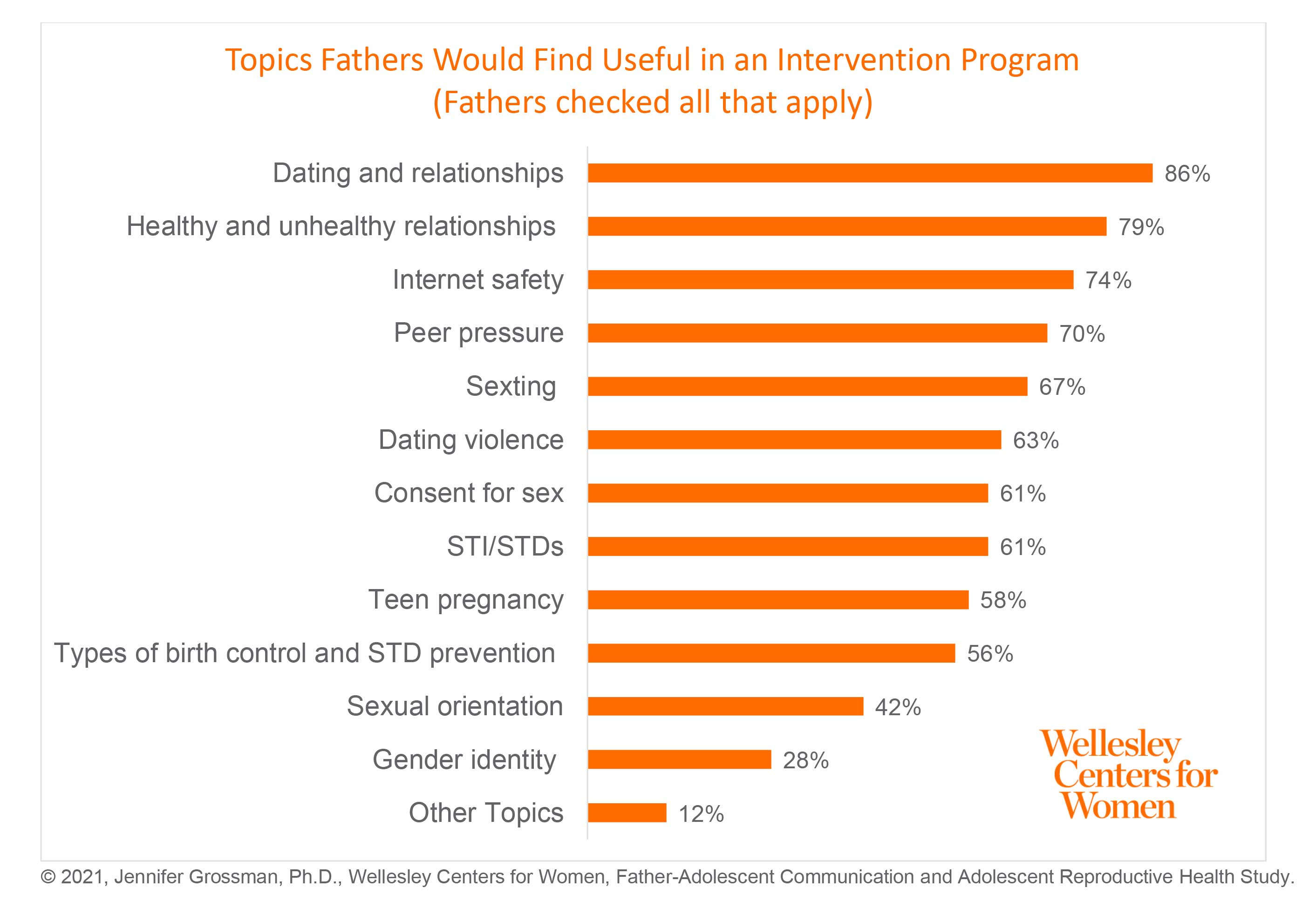Risky sexual behaviors have high personal, social, and financial costs. Family communication about sex can reduce risky sexual behaviors, but most research and teen health education programs focused exclusively on mothers and didn’t address low rates of father-teen communication about sex. These gaps failed to address both the potential of father-teen communication to protect teens from risky sexual behavior and the strategies needed to support it. In addition, few studies provided multiple perspectives on this communication or investigated the feasibility of father-teen sexuality communication interventions.
This mixed-methods study included multiple family members’ perspectives on father-teen sexuality communication and an initial assessment of the feasibility and acceptability of a father-teen intervention. The study applied an established conceptual model of mother-teen sexuality communication to fathers. It involved three aims: 1) assess under what conditions father-teen sexuality communication is associated with teen sexual behaviors, 2) investigate contexts of fathers’ direct and indirect sexuality communication and initial feasibility of a father-teen intervention, and 3) triangulate fathers’, teens’, and second parents’ perceptions of father-teen sexuality communication. The study was part of the Family, Sexuality, and Communication research initiative at WCW.
Methodology:
To address these aims, this study used secondary survey data from 952 urban high school students and new interviews with 43 fathers, 16 mothers, and 22 teens completed between February and June 2021. The fathers in the sample were diverse in their racial/ethnic and educational backgrounds.
Preliminary Results:
Most fathers in the sample talked with their teens about dating, relationships, or sex. Nine out of 10 fathers shared that they are “very open” or “somewhat open” to participating in a program to support talk with their teens about dating, relationships, or sex. The top three topics fathers wanted to learn to discuss with their teens were dating and relationships, healthy and unhealthy relationships, and internet safety.
Implications:
This work was significant because it assessed under what conditions father-teen sexuality communication predicts teens’ sexual health, and because it involved an in-depth assessment of this communication from multiple perspectives. This study contributed to public health by 1) identifying the conditions of communication which can support teens’ health, 2) identifying fathers’ and their families’ perceptions of barriers to and supports for father-teen communication, and 3) assessing the feasibility and acceptability of a father-teen intervention to support healthy conversations about sex and relationships. Its innovation lied in a triangulation approach, which integrated multiple family members’ perspectives on father-teen sexuality communication and in its inclusion of fathers who did not talk with teens about sex.
This project was supported by the Eunice Kennedy Shriver National Institute Of Child Health & Human Development of the National Institutes of Health under Award Number R21HD100807. The content is solely the responsibility of the authors and does not necessarily represent the official views of the National Institutes of Health.





